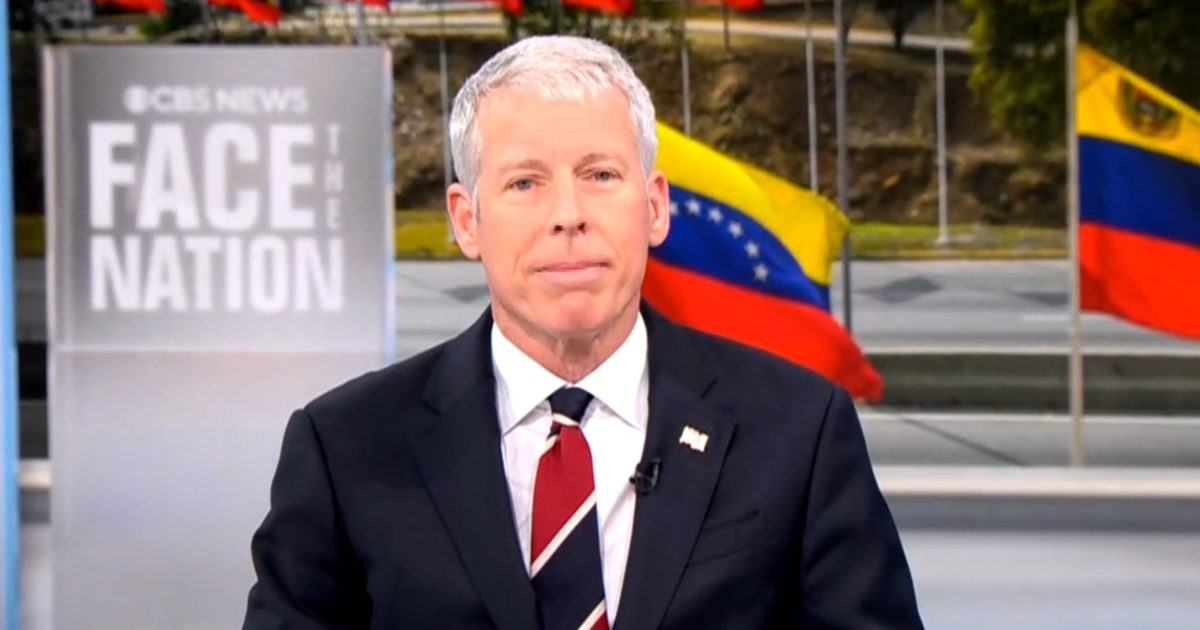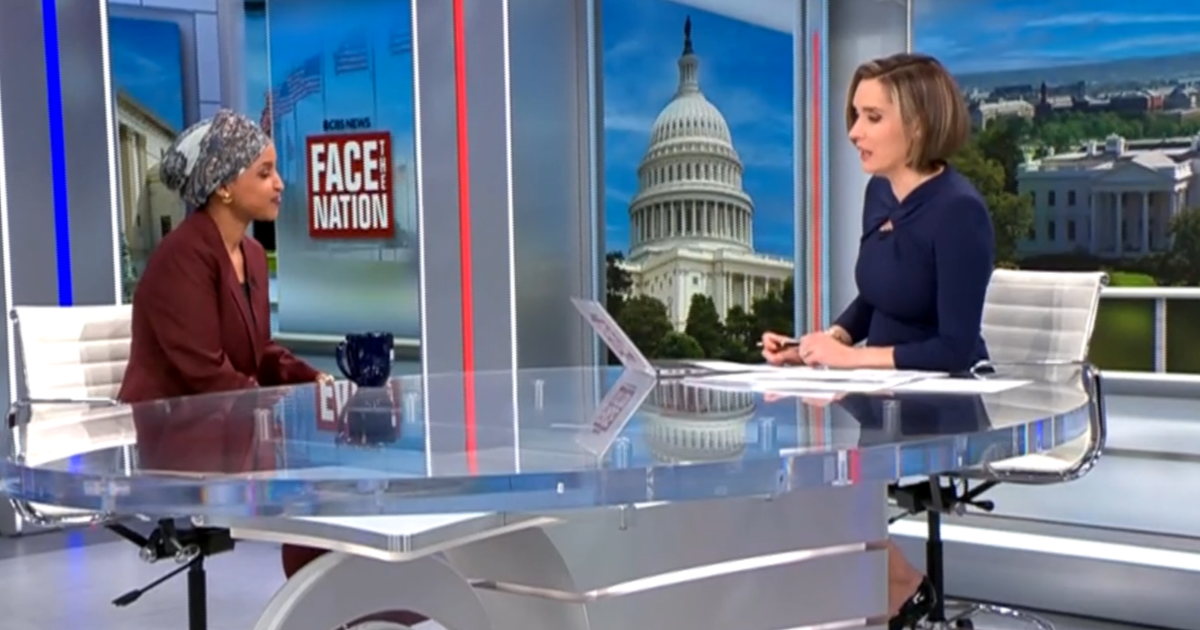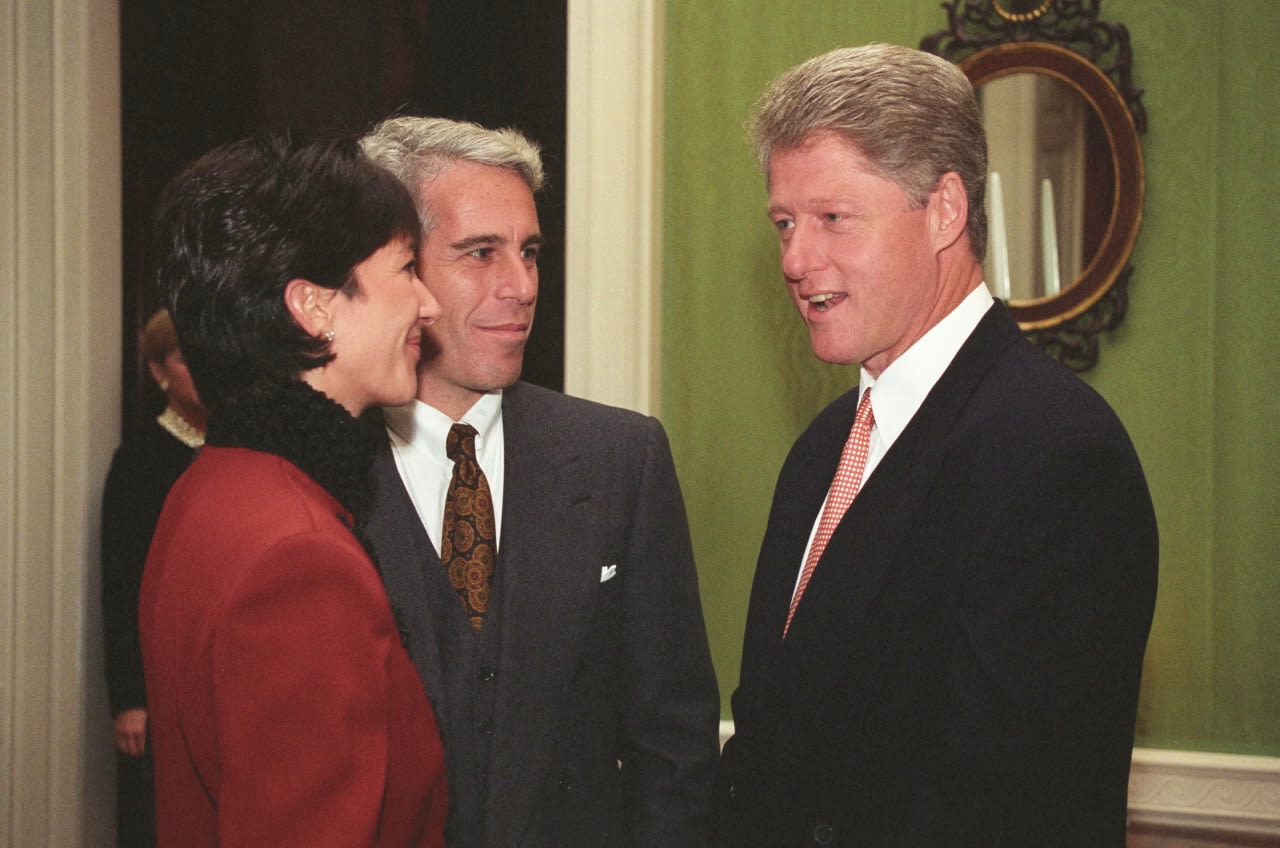Transcript: Amos Hochstein on "Face the Nation," Oct. 23, 2022
The following is a transcript of an interview with Amos Hochstein, special presidential coordinator for international energy affairs, that aired Sunday, Oct. 23, 2022, on "Face the Nation."
MARGARET BRENNAN: For a closer look on that additional release from the Strategic Petroleum Reserve and its impact on prices, we're joined by Amos Hochstein, the Special Presidential Coordinator for International Energy Affairs. Good morning, good to have you back here. President Biden has released more oil from the SPR than all previous presidents combined. Republicans are saying this is depleting the stockpile and it's a national security risk. When you were last year, you said that this would end towards the end of the year. Did you know then that three weeks before the election, there was going to be a release?
PRESIDENTIAL COORDINATOR ON ENERGY SECURITY AMOS HOCHSTEIN: Well, first, it's good to be here. Thank you for having me again. President- before I came here last time, the President was in the middle, already, of releasing 180 million barrels. This is still part of that 180 million barrels. So the announcement that was made the other day, is because it takes some time to get those barrels released and these barrels will be released in December. The president's been committed to bringing down gasoline prices. When- you mentioned when I was here last, we talked about then prices were coming down from $5 and we were about $4.50. Today there are $3.80 or $3.79. And in fact, most Americans see prices are at $3.40 to $3.50. So he's been committed to bringing those prices down and this release is just part of that process that's been going on for months.
MARGARET BRENNAN: And he says he will do more. But when we last spoke, you said private industry was expected to pick it up and so that you wouldn't have to keep doing these emergency releases. Why isn't that working?
HOCHSTEIN: Well, I think it is working. The private industry is increasing supply.
MARGARET BRENNAN: Then why would he have to do more releases?
HOCHSTEIN: Well what the President said is that we're going to be very watchful to see what happens around the world. There are a lot of geopolitical events, the Russian invasion, I don't know what Putin is going to do in December or in January. So we have to be ready for that. So what the President said is, we're going to complete the 180 that we've- that he has announced many months ago, as he's been doing monthly. That will continue on into December. And then as we are- we are making sure that we are prepared so if we need to do additional releases, we can do them very, very quickly.
MARGARET BRENNAN: There's going to be a European ban on Russian crude imports on December 5th, that's going to have an impact globally. How much of a shock is that going to have on energy prices ahead of the holidays?
HOCHSTEIN: Well, I think that's exactly what we're talking about, right? So the President made this release- announced this release that will happen in December around the time that the ban comes in. We're also working with Europe and other G7 partners around the world, countries in Asia, to see if we can make sure that we continue to have the Russian barrels on the market, but ensure that the price that, and the revenues that Russia gets, continue to be depressed
MARGARET BRENNAN:This is the price cap you're trying to hold up still?
HOCHSTEIN: Correct.
MARGARET BRENNAN: So that price cap, though, and the negotiations around this, has raised speculation that that was one of the factors in Saudi Arabia's decision to pull 2 million barrels a day off the- off the market and the President has said he's furious, that he's going to retaliate against Saudi Arabia. Is that what happened here?
HOCHSTEIN: Well, look, clearly the President said it better than I can that he was extremely disappointed in the OPEC decision, and that he thought it was a mistake and clearly, nobody can argue that it was warranted for any economic reason--
MARGARET BRENNAN: Well, that's what OPEC says.
HOCHSTEIN: I understand, but nobody else thinks that it was warranted. And even OPEC when they announced it 2 million and then they say, 'Well, we're not actually going to cut 2 million. We're just going to cut 900, and then you look a little deeper, and it's really just about 500.' So the impact on the market is not going to be as significant, so this was more of a big political statement that OPEC has- has made. And we're--
MARGARET BRENNAN: How so?
HOCHSTEIN: Look at the end of the day, the President was disappointed with OPEC did, but his commitment is to do things here in the United States, where we can- where we can have an impact on the American economy, bringing down prices as they have, and look, think about it this way when I was here last, in June, we were at $120 a barrel of oil and $5 of gasoline. Today we're at $85--
MARGARET BRENNAN: --$85.
HOCHSTEIN: $85--
MARGARET BRENNAN: And Bank of America said today they expect an average of $100 a barrel next year. That just came out this morning.
HOCHSTEIN: Yes, but look at- in June, Goldman Sachs expected the last quarter of this year to be $140- prices to rise to $140. So the banks keep saying that the price is gonna go up. The President keeps taking decisive action here that has led to lower prices--
MARGARET BRENNAN: But these are short term-fixes, the releases.
HOCHSTEIN: These are not short-term fixes, Margaret. These are- we've been in this now for eight, nine months. This is almost a year now of higher prices and the President has taken these actions. So I don't think these are short-term. I understand that the banks make their own analysis, but they've- they haven't been accurate all the time. And what is really what you can measure is that we're down 30% on oil prices, and we're down over $1.20 in- in the United States on gasoline. And in fact, we're now almost, every single week for the last several months, we've seen a decline in gasoline price in the United States. And so we're working with allies. We're trying to strengthen the American economy, while also making sure that our allies economies are strong as well
MARGARET BRENNAN: Before I let you go real quick, are you going to be able to close this deal between Israel and Lebanon, that would allow for drilling off their coasts?
HOCHSTEIN: Well, I think that this is a really great development, a historic agreement between two enemy countries. Lebanon doesn't even recognize the State of Israel. We're going to have a deal, we're going to sign it hopefully this Thursday. And I hope that this continues to- commitment- our commitment to stability in the region and prosperity for both countries.
MARGARET BRENNAN: Amos, good to have you here. Hope to have you back again soon. We'll be back in a moment.





